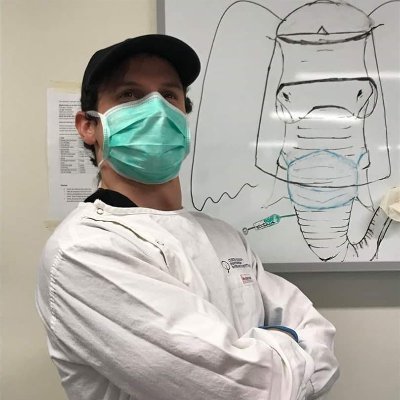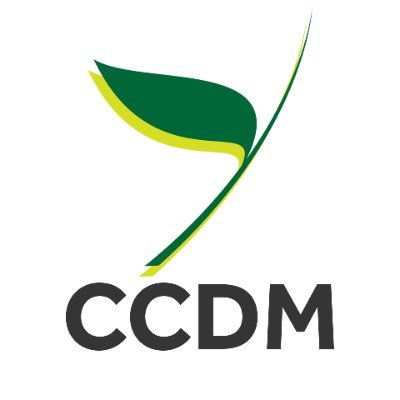
Callum Verdonk
@CallumVerdonk
Followers
177
Following
849
Media
22
Statuses
106
Part-time molecular biologist, part-time structural biologist. Full-time buffoon. Views my own 🙈 More active on #Bluesky @callumverdonk.bsky.social
Perth, Western Australia
Joined August 2020
Our @theCCDM @CurtinEandA postdoc @CallumVerdonk came up with the goods @CBSM_WA!! Congrats on the New Investigator Award! 🏆💪 #CBSMWA #CBSMWA2025
1
2
7
Check out our recent review on the power (and challenges) of AI use in plant-pathology protein-protein interactions!
🧠 Can AI help us understand how fungal pathogens infect plants? A new review says yes. AI tools show promise in modelling effector–plant protein interactions to fight crop disease🌾 📖 https://t.co/iOaD9J6bxW
@theGRDC @CurtinUni @Univ_Toulouse @CallumVerdonk @KGagalova
0
0
1
Today at INRAe: @karchuntan discusses how co-infection by necrotrophic fungi BREAKS DOWN disease resistance in wheat @INRAE_France @ifudal @theCCDM
0
2
14
Thank you @ifudal & @soyer_jessica for hosting us @INRAE_France. 🙏🇫🇷 Plenty of productive discussions on all things fungal!!! @theCCDM @CallumVerdonk
0
2
16
New insights into protein-DNA interactions reveal cellular machinery secrets https://t.co/7HFP7ZLI8a via @physorg_com
phys.org
New research pioneered by The University of Western Australia is shedding light on the intricate dance between proteins, DNA and RNA—the fundamental building blocks that carry out cellular processes...
0
0
1
uwa.edu.au
0
0
0
A big thank you to fellow authors: Mark @m_j_ag, Karina Yui Eto and Drew Hall, and especially to my PhD supervisors @DrJoshRamsay and @CharlieBondXray! A big collaboration between @CurtinMRI and @SMS_UWA 👏🥳
1
0
0
That brings me back to the paper. We describe how RdfS structurally controls ICE transcription, excision and transfer, all through something called “indirect readout”. Some extraordinary complexity by one little DNA-binding protein! 13/13
academic.oup.com
Abstract. Winged helix–turn–helix (wHTH) proteins are diverse DNA-binding proteins that often oligomerize on DNA and participate in DNA recombination and t
1
0
0
Sure enough, working with Mark (@m_j_ag) to do molecular dynamics, we showed RdfS DNA-binding mimicked BldC in many ways. At the same time, we did a bunch of DNA-binding and reporter assays, and showed RdfS binds different DNA targets to do different things. 12/13
1
0
0
More clues, but still no full answers. We did see that another, very similar RdfS-like protein, called BldC, also had very similar characteristics when sticking to DNA. We wondered if RdfS was behaving the same way? 11/13
nature.com
Nature Communications - BldC regulates the onset of differentiation in Streptomycetes by a yet unknown molecular mechanism. Using a combination of structural, biochemical and in vivo approaches,...
1
0
0
The next big discovery from my PhD was solving the structure of RdfS. We discovered RdfS was not all as it seemed – it liked to join up together and form big, helical structures – which looked a lot like DNA! 10/13
journals.iucr.org
The X-ray crystallographic structure of RdfS reveals molecular superhelical polymers in the crystal.
1
0
0
We wanted to know how RdfS was working to seemingly control excision, transfer and gene regulation to dictate how these ICEs moved between bacteria. We worked with structural biologist and biophysicist @CharlieBondXray to look at things at the atomic level! 9/13
1
0
0
Around the same time, Josh was working with @MurdochUni’s Legume Rhizobium Sciences on another type of important “tripartite ICE”, and discovered that RdfS also regulated other genes, another clue! 8/13
journals.plos.org
Author summary Bacteria evolve and adapt quickly through the horizontal transfer of DNA. A major mechanism facilitating this transfer is conjugation. Conjugative DNA elements that integrate into the...
1
0
0
Weirdly, though, we saw that when we replaced RdfS after deleting it (called complementation), only some of its roles were restored. It seems the amount of RdfS present (its concentration) was important for all the RdfS functions! 7/13
1
0
0
My first PhD paper confirmed some things Josh (and others) saw. The RdfS protein was also seemingly regulating conjugation – how bacterial DNA is actually transferred between each other. 6/13
1
0
0
Something funny was happening with this RdfS protein though – it seemingly also did a bunch of other stuff that most of these types of proteins didn’t! That’s where I came in – about 25 years (and a few other scientists) after the discovery of ICEs in Mesorhizobia. 5/13
1
0
0
Josh discovered RdfS – a “recombination directionality factor”, a small DNA-binding protein that works with other proteins to mediate cutting-out the DNA (excision) from the bacterial chromosome. 4/13
onlinelibrary.wiley.com
The Mesorhizobium loti strain R7A symbiosis island is an Integrative Conjugative Element (ICE), herein termed ICEMlSymR7A, which integrates into a phetRNA gene. Integration reconstructs the phetRNA...
1
0
0
Fast forward a few years, and while @DrJoshRamsay was doing his PhD, he wanted to know how these symbiosis islands were moving on a molecular level. How do these N-fixing ICEs transfer between the Mesorhizobia bacteria, and what controls it all? 3/13
1
1
2
About 30 years ago, @clive_ronson discovered that the nitrogen-fixing bacteria he was working on could share their N-fixation genes! This “symbiosis island” was a special type of chromosomally-integrated mobile element called an “ICE”. 2/13
pnas.org
Nodulation and nitrogen fixation genes of Mesorhizobium loti are encoded on the chromosome of the bacterium. Nevertheless, there is strong evidence...
1
0
0
I’m excited to finally share our work published in @NAR_Open! This is the final paper from my PhD – showing how my focal research protein RdfS uniquely coordinates a bunch of different molecular roles. Read along to get the whole story! 👀👇1/13
academic.oup.com
Abstract. Winged helix–turn–helix (wHTH) proteins are diverse DNA-binding proteins that often oligomerize on DNA and participate in DNA recombination and t
1
2
6







